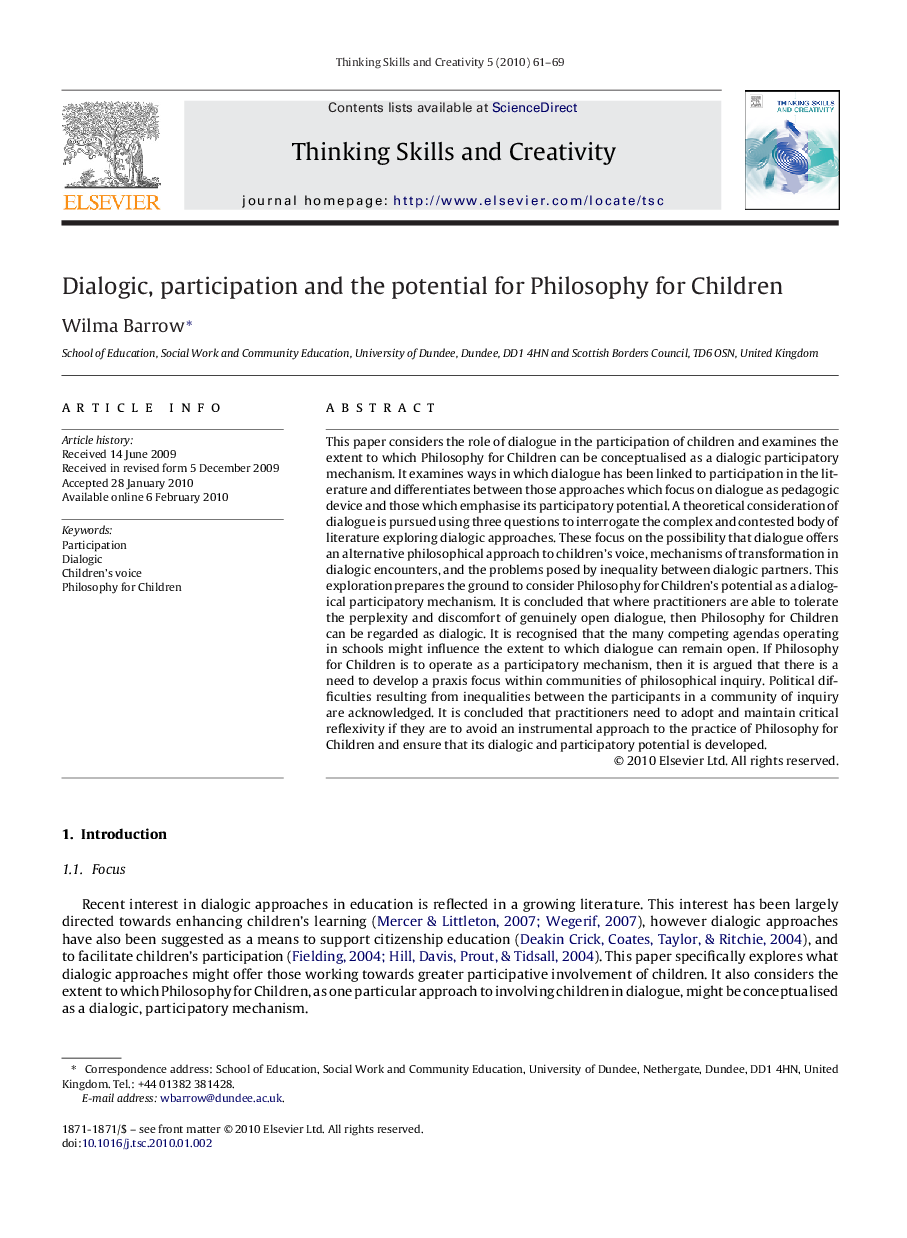| Article ID | Journal | Published Year | Pages | File Type |
|---|---|---|---|---|
| 375666 | Thinking Skills and Creativity | 2010 | 9 Pages |
This paper considers the role of dialogue in the participation of children and examines the extent to which Philosophy for Children can be conceptualised as a dialogic participatory mechanism. It examines ways in which dialogue has been linked to participation in the literature and differentiates between those approaches which focus on dialogue as pedagogic device and those which emphasise its participatory potential. A theoretical consideration of dialogue is pursued using three questions to interrogate the complex and contested body of literature exploring dialogic approaches. These focus on the possibility that dialogue offers an alternative philosophical approach to children's voice, mechanisms of transformation in dialogic encounters, and the problems posed by inequality between dialogic partners. This exploration prepares the ground to consider Philosophy for Children's potential as a dialogical participatory mechanism. It is concluded that where practitioners are able to tolerate the perplexity and discomfort of genuinely open dialogue, then Philosophy for Children can be regarded as dialogic. It is recognised that the many competing agendas operating in schools might influence the extent to which dialogue can remain open. If Philosophy for Children is to operate as a participatory mechanism, then it is argued that there is a need to develop a praxis focus within communities of philosophical inquiry. Political difficulties resulting from inequalities between the participants in a community of inquiry are acknowledged. It is concluded that practitioners need to adopt and maintain critical reflexivity if they are to avoid an instrumental approach to the practice of Philosophy for Children and ensure that its dialogic and participatory potential is developed.
